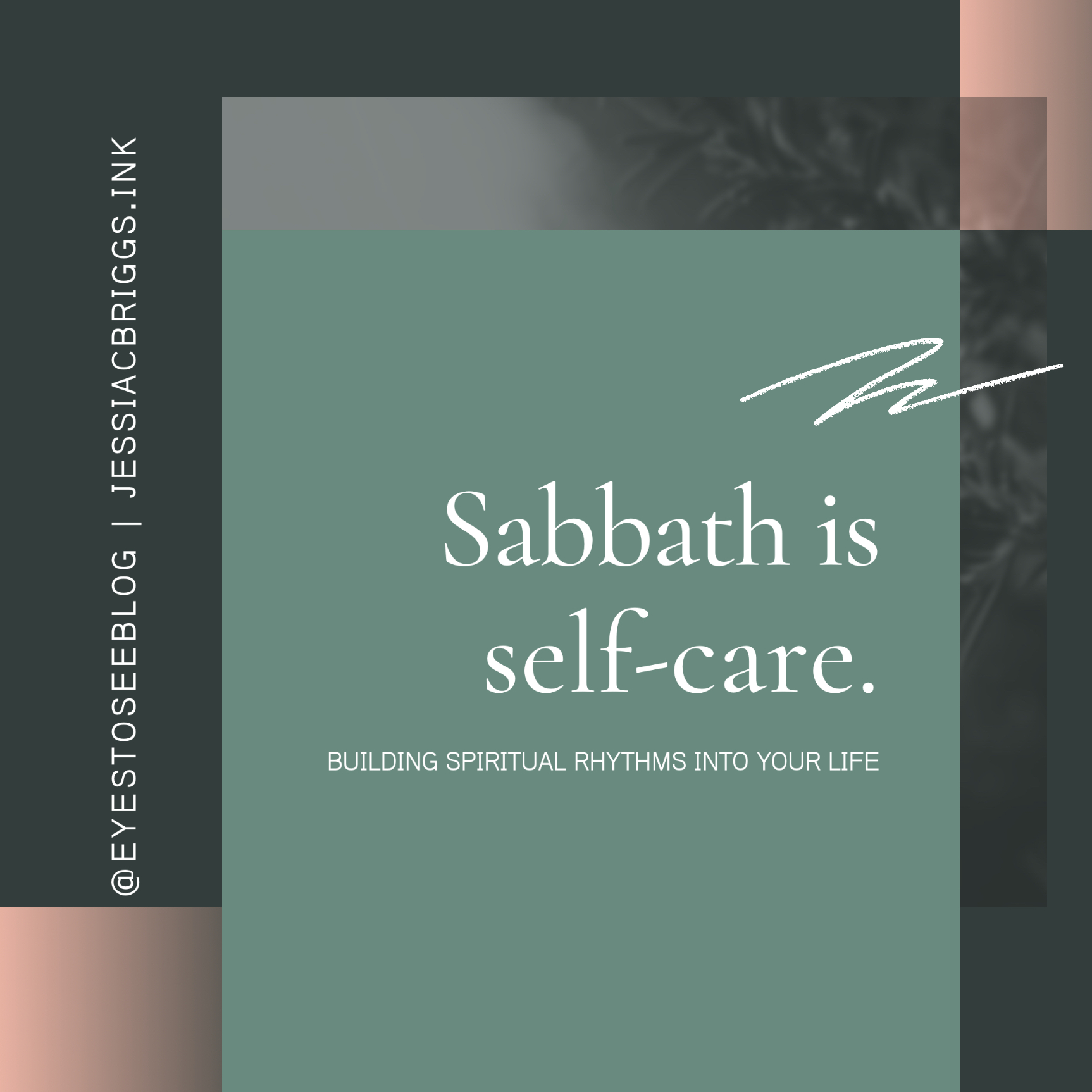Self-care is usually categorized as “worldly” or in another camp outside of our spiritual practices. The idea of Sabbath, though, is the inherent concept of self-care. Self-care is not selfish. Self-care is integral to having a healthy, flourishing faith in Christ.
Sabbath was made by God for humanity (Mark 2:27). The Sabbath was the first act of participation by humankind with God. In the creation account of Genesis, God created humankind on day 6. Therefore, the next full day cycle is Sabbath, the seventh day and the day of rest. What an important concept to grasp- before we can produce, work, hustle, or even form meaning, we much first rest. We see this in our natural world and human experience- a newborn baby rests a tremendous amount in those fresh days of life, in preparation for growth and maturity.
Sabbath is a spiritual rhythm that makes space for us to rest. But rest is not the opposite of work; rest is work of a different order. Rest was always meant to be held as a sacred space where we feast, celebrate and enjoy the fruits of our labor.
Rest cannot mean just the ceasing of work- the extracurricular activities, the social events, the trawling online, the Netflix binge, the pedicures or massages. That’s more accurately named leisure. But rest… rest is a re-orienting of our humanness.
We need time carved out for remembering the good, rejoicing in the truth, savoring and slowing down. Sabbath creates time for delight. We surrender the to-do list and pursue what sets our souls on fire.
What is your truth?
Where do you find goodness?
Where do you see beauty?
For me it looks like a nice meal with relaxing instrumental music, lit candles and reading a book aloud with my family. In warmer months, it’s a walk by the ocean. We don’t always have to set aside huge amounts of time for rest, but we should get into the habit of setting time aside for the pursuit of truth, goodness and beauty.
Rest pushes us to remember we’re relationship-oriented, not accomplishment oriented. We are human beings, not human doings. It stops the hustle of wanting moremoremore and instead focuses on the now. Rest gives perspective. It reminds us Who orders our days and sustains our life. Sabbath naturally creates a rhythm of gratitude; as we make time to focus on the present, the gifts come into view more clearly.
Lastly, rest is not always easy or gentle. Setting aside time for meaningful pause really enables us to learn and grow. Making space for rest requires diligence, attention and hard work. It’s a choice to set aside the to-do lists and deadlines, to slow the hustle and spend time really soaking in the truth: we earn no love from God; instead, we rest in his love.
“The number one enemy of Christian spiritual formation today is exhaustion,” writes Jim Smith. Maybe we should be less afraid of a spiritual enemy, and be more aware of the pace of our lifestyles. We often are our own worst enemy.
